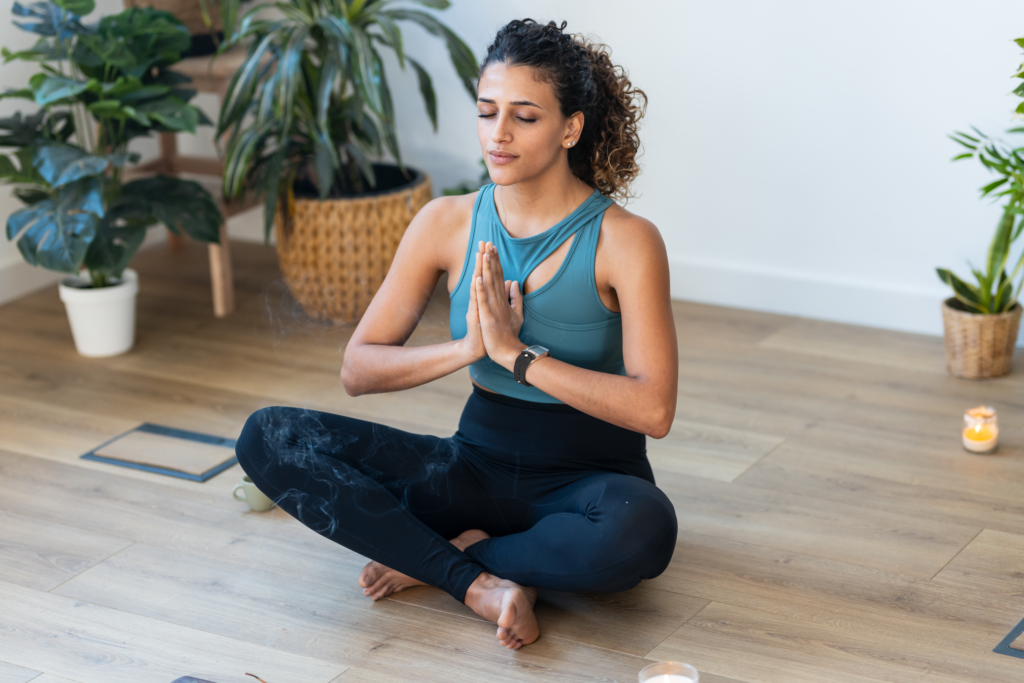Ever tried to boost your energy by sleeping longer, only to wake up feeling just as exhausted? Here’s a little secret: sleep and rest are not the same thing, though many of us often confuse them. For instance, you might be getting your recommended 7 hours of sleep each night (okay, on some nights), squeezing in a weekly run, and spending Sundays lounging and watching your favorite series. Yet, why do you still feel drained? According to a TEDx Talk by Dr. Saundra Dalton-Smith, a physician and researcher, it’s because you’re not experiencing all the different types of rest your body needs. Even if you’re sleeping enough, you’re likely exhausted from the daily grind of screen time, endless Zoom meetings, and to-do lists. As Dr. Dalton-Smith states, “Rest is a chemical-free, safe, and effective alternative therapy that is the most underused.” Therefore, if sleep alone isn’t enough to restore your energy, it’s time to incorporate these seven types of rest into your routine:
1. Physical Rest
Physical rest can be passive or active. Passive rest involves sleep or napping, while active rest includes activities like yoga, stretching, or massage therapy.
Tips:
- Aim for 7-9 hours of sleep per night. Having a wellness tracker can help you analyze your sleep patterns, understand your sleep quality, and improve it by providing insights into your wake-up and bedtimes, along with graphical information and more.
- Incorporate gentle stretching or yoga into your daily routine.
- Treat yourself to a massage or practice self-massage techniques.

2. Mental Rest

Mental rest is crucial for preventing that midday slump or brain fog, which are your body’s way of signaling the need for a break. Without proper mental rest, your mind can become overloaded, leading to decreased productivity and increased stress.
Thus, incorporating mental rest into your daily routine is essential. Use your electronic tools to set reminders for 10-minute breaks throughout the day. Additionally, these breaks help clear your mind, reduce stress, and improve focus, ensuring you stay sharp and efficient.
By prioritizing mental rest, you address one of the critical aspects of the 7 types of rest, helping to rejuvenate your mind and maintain mental clarity.
Tips:
- Schedule regular short breaks during your workday.
- Practice deep breathing exercises to calm your mind.
- Keep a journal to offload your thoughts before bed.
3. Sensory Rest
Bright lights, computer screens, background noise, and constant conversations can lead to sensory overload. Combat this by closing your eyes for a minute midday or limiting screen time in the evening.
Tips:
- Take a few minutes each day to close your eyes and enjoy complete silence.
- Dim the lights in your home in the evening.
- Reduce screen time, especially before bed.
4. Creative Rest

One of the vital 7 types of rest if your job involves problem-solving or brainstorming is the creative rest. Thus, schedule time for activities that inspire you, such as walking in nature, reading a book, or watching an inspiring film.
Tips:
- Spend time in nature to recharge your creativity.
- Engage in hobbies that inspire you, like painting, music, or crafting.
- Surround yourself with creative stimuli, such as art or uplifting music.
5. Emotional Rest
Tips:
- Practice saying “no” to requests that drain your energy.
- Find a trusted friend or therapist to talk to about your feelings.
- Allow yourself to express emotions through journaling or creative outlets.
6. Social Rest

If you need emotional rest, you likely need social rest too. Identify who in your life energizes you and who drains you. Spend more time with positive, uplifting people and reduce interactions with those who deplete your energy.
Tips:
- Schedule time with friends or family members who uplift and energize you.
- Set boundaries with those who drain your energy.
- Make time for solitary activities that recharge you.
7. Spiritual Rest
Spiritual rest, one of the 7 types of rest, involves connecting beyond the physical and mental to feel a sense of belonging, love, and acceptance. Incorporate activities like meditation, prayer, or community engagement into your routine.
Tips:
- Practice daily meditation or mindfulness exercises.
- Engage in activities that connect you with a higher purpose, like volunteering.
- Participate in a spiritual community or group.
Note: Persistent fatigue may be related to various health issues. Consult your doctor if it continues.Rebalance your life by embracing these seven types of rest. Your body and mind will thank you.
Sources:
- Beddington, E. (2021, 25 novembre). The seven types of rest: I spent a week trying them all. Could they help my exhaustion? The Guardian.
Geoffray, J. (2022, 21 juillet). There Are 7 Types of Rest. Which Do You Need Most? Goop.


